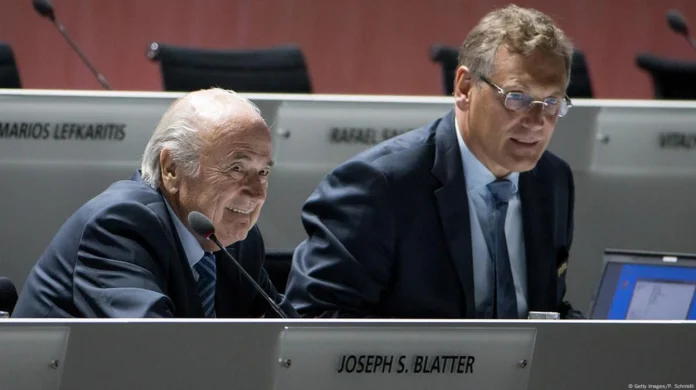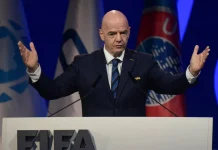In August 2025, a Zurich Industrial Tribunal handed a decisive decision in favour of former FIFA officials Joseph Sepp Blatter and Markus Kattner in a multi-million Swiss Franc lawsuit. The FIFA had recovered bonuses paid between 2010 and 2013, including payments to other executives of a total of CHF 23 million, as a result of the financial success of the 2010 FIFA World Cup in South Africa. Given the inter-FIFA disputes internally, the tribunal held that Blatter and Kattner did have a right to believe that the payments were authorized in good faith.
The FIFA allegation that these bonuses were the outcome of conflict of interest schemes, sanctioned to reward a select few top FIFA leaders. The tribunal’s rejection of these allegations, however, shows the difficulty in properly reconciling organizational norms and executive action, and points to the continued problems with establishing accountability at highest levels within FIFA. This ruling, coming ten years after the initial controversies, begs questions about the resilience of FIFA’s internal compliance and ethics systems.
Background on the corruption and bans
Sepp Blatter, FIFA president from 1998 to 2015, was subjected to a series of sanctions, including a $1 million fine and banning order for “just because he allowed misconduct in the association’s management and did not take the necessary actions to end corruption within the organization.” Markus Kattner, til 2016 the organisation’s finance director, was handed a 10-year ban for comparable offences. While these bonuses make up a small part of much larger corruption investigations that have been ongoing since 2015 and which have revealed systemic financial opacity across FIFA, the contract changes and alleged mismanagement of the disputed bonuses are at the heart of their charge.
The tribunal ruling cleared both men of a need to repay the bonuses at issue, a result that, in the face of sanctions and scandal fallout, has come under criticism from governance experts, who say FIFA’s disciplinary and oversight systems remain unenforceable and not sufficiently independent.
Impact on FIFA’s governance and global credibility
The decision comes at a time when football’s world governing body FIFA is still treading water towards reforms that are specifically geared to reestablish trust following the 2015 corruption scandal. The absence of financial recovery and a clear accountability of senior officials bolsters the argument that FIFA’s story of institutional reform is much more complex than it lets on. Sponsors, national federations and the general football community may read this result as proof that FIFA is still not keen to embrace complete transparency or control.
Public opinion, already stretched thin because of the past scandals, is stretched even further. Analysts note that the symbolic significance of the ruling adds to the concerns about structural vulnerabilities in FIFA’s governance, specifically related to executive remuneration, conflict-of-interest policies and financial disclosure requirements.
The trust deficit and operational risks
The Blatter-Kattner dispute highlights persistent challenges in aligning FIFA’s governance ambitions with operational reality. National associations, especially in emerging football markets, may question the reliability of FIFA’s directives if executive accountability is inconsistent. Players and fans, too, may interpret such rulings as a signal that organizational ethics remain negotiable, creating reputational risks that extend beyond Swiss tribunals.
Operationally, FIFA faces the task of balancing continuity in leadership with stronger compliance mechanisms. Without demonstrable control over bonus structures and internal conflicts, the organization risks eroding its legitimacy and compromising strategic initiatives aimed at global football development.
This person has spoken on the topic, emphasizing the persistent governance challenges that FIFA faces in transcending past malpractices and establishing lasting institutional integrity:
Promoters respond.
Kartel was paid $950K USD out of $1.35M USD with $150K to legal rep.
Final payment was blocked by T&T financial regulations.
Organisers only learned of Kartel’s cancellation same way and time we did. pic.twitter.com/St9e9HsB35
— Kejan Haynes (@KejanHaynes) May 31, 2025
Broader implications for FIFA and sports governance
The tribunal decision illustrates the gap between institutional reform and legal enforceability. While FIFA has introduced a range of compliance and ethics reforms since 2015—including the establishment of the independent Ethics Committee and enhanced financial reporting—these measures have limited recourse in cases where historical payments are challenged under Swiss industrial law. Legal interpretations of “good faith” create conditions where alleged mismanagement cannot always be remedied retroactively, complicating governance narratives.
Signals for emerging football markets
Emerging football federations often model governance practices on FIFA’s standards. The lack of recoverable disputed bonuses could wrongly send a message that un-transparent practices are acceptable, reducing the motivation of local associations to establish strict controls. This can increase governance gaps between developed and developing countries, setting back FIFA’s declared purpose of fair development in global football.
Ethical culture and stakeholder engagement
Analysts say in addition to legal compliance, FIFA should foster an ethical culture that strengthens accountability throughout the association. The Blatter-Kattner case illustrates the fact that formal sanctions in isolation from enforceable mechanisms can never gain stakeholder confidence. Long-term member association involvement, independent auditing and clear reporting are crucial to regain the credibility that has been lost due to decades of secrecy in executive decision making.
The tribunal decision is more than a legal technicality; it serves as a barometer of FIFA’s still-ongoing struggle to apply ethics in action as opposed to solely in theory. However, it opens the way for consideration of whether international sports bodies can genuinely move beyond their historical misbehavior without losing their core institutional values over the long term.
The Blatter and Kattner bonus litigation is, therefore, indicative of even deeper structural problems in international football governance. Outside the courtroom, the case echoes with inquiries of responsibility, openness, and the power structures that mold international sports organizations. As FIFA proceeds, its capacity to convert episodic reform into continuing, visible integrity will determine not only its reputation but also the trust and participation of the world footballing public for years to come.












